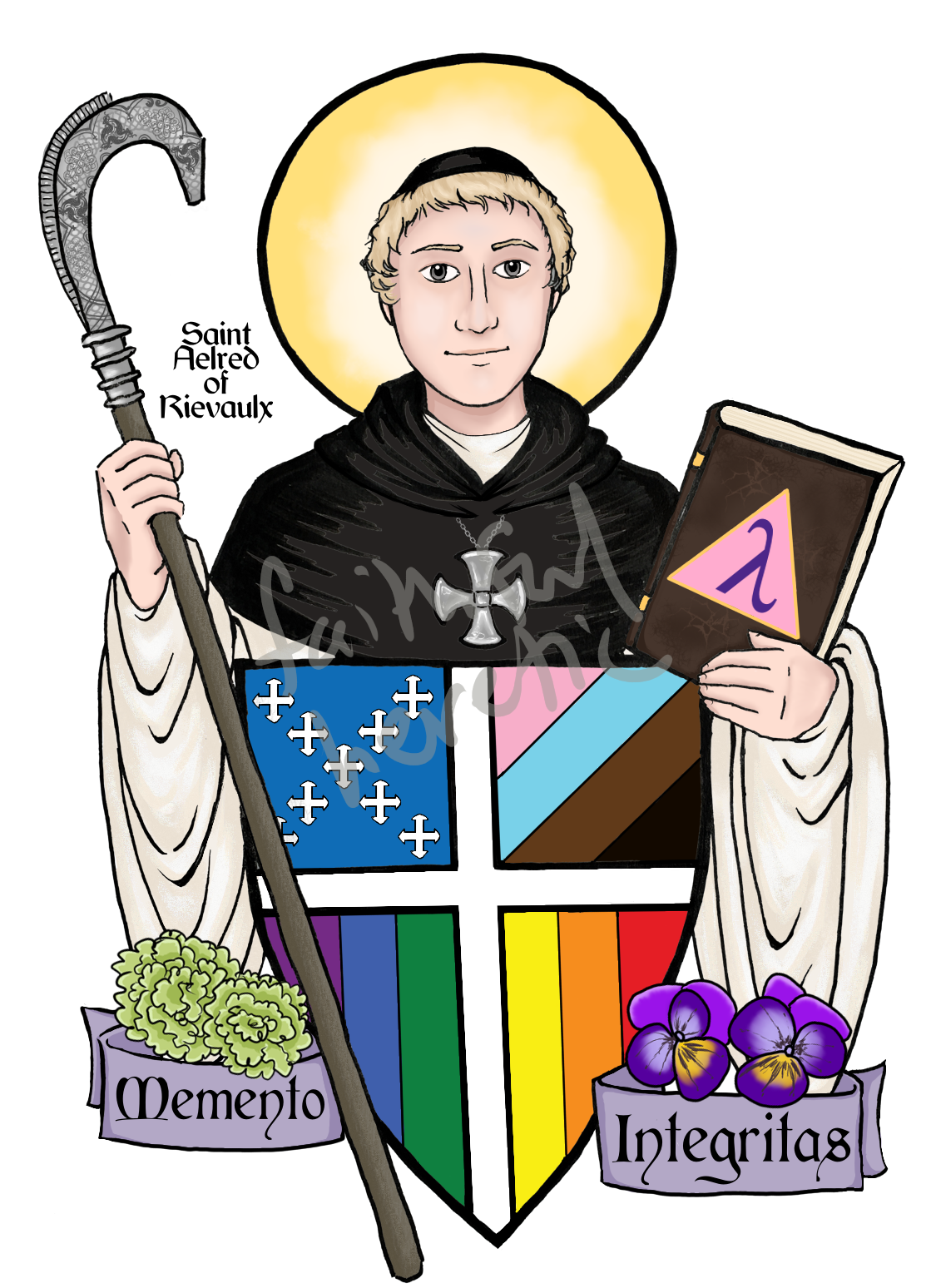Saint Aelred of Rievaulx and his Spiritual Friend
1110-1167, Northumbria, England
Feast Day: January 12
![]()
For Aelred's 2024 feast day, I prepared a research project. This article combines Aelred's medieval and modern history to present a comprehensive queer hagiography.
AELRED OF RIEVAULX: THE GANYMEDE SAINT
Download PDF (Revised version published 12 Jan 2025)
Read on AO3 (Original, unedited version)
I also presented a multimedia lecture at my parish based on my research. You can watch the video here
Bio:
Aelred of Rievaulx (1110-1167 CE) was an English monk, abbot, diplomat, historian, and theologian. He is most famous for his love of other men and his theology of Spiritual Friendship, which combines scripture, classical scholarship, and Aelred's long years of pastoral wisdom to provide a manual in creating and maintaining long-term egalitarian love-bonds between monks.
Aelred was also disabled: he suffered from arthritis and chronic kidney stones, and he lived mostly in and around the abbey's infirmary for the last ten years of his life. We don't know when he became disabled or the exact nature of his disability, but we know that his community accommodated him with a special dwelling that allowed him to live comfortably near the infirmary so he could access healthcare. It was here that he would have written "On Spiritual Friendship." Older conventions emphasized God's deliverance from pain and infirmity, and icons do not usually depict disability. However, this has had the effect of erasing the experience, ministry, and leadership of disabled people from Christian history. So, I decided to depict Aelred with a cane and one hand swollen from arthritis, in order to show that he was both disabled and a leader and respected authority in his community.
Aelred's Spiritual Friend is also not usually remembered along with him: we don't even know his name. Aelred had two spiritual friends at different times. The first was named Simon, and he died young. The second was with him for many years before he also died, and this is the friend I have drawn with him. In "On Spiritual Friendship," Aelred describes him as "my hand, my eye, the staff of my old age. He was the refuge of my spirit, the sweet solace of my griefs, whose heart of love received me when fatigued from labors, whose counsel refreshed me when plunged in sadness and grief. He himself calmed me when distressed, he soothed me when angry. Whenever anything unpleasant occurred, I referred it to him, so that, shoulder to shoulder, I was able to bear more easily what I could not bear alone. What more is there, then, that I can say? Was it not a foretaste of blessedness thus to love and thus to be loved; thus to help and thus to be helped; and in this way from the sweetness of fraternal charity to wing one's flight aloft to that more sublime splendor of divine love, and by the ladder of charity now to mount to the embrace of Christ himself; and again to descend to the love of neighbor, there pleasantly to rest?"
By depicting Aelred with both his disability and his Spiritual Friend, I am adding material context back into Aelred's theology of spiritual friendship. These relationships were diverse, complex, and multifaceted: sometimes they were close coworkers, sometimes they were like fathers, sons, or brothers, and sometimes they were romantic couples.
Iconography
- Aelred's pose (seated, holding a long curly banner) comes from a period manuscript illustration of him.
- "Friend Cleaving to Friend in the Spirit of Christ": This is a phrase from "On Spiritual Friendship," and it was included in Robert Lentz's icon of Aelred.
- Aelred's left hand is visibly swollen with arthritis. He also carries a cane, which has been carved with a decorative design. Aelred's disability was actively accommodated by his community.
- Aelred wears a Canterbury cross. Although the English church was still in communion with Rome during his lifetime, he is part of the Anglican tradition.
